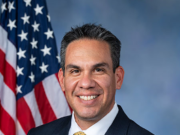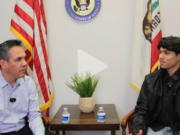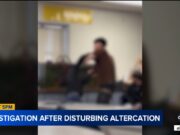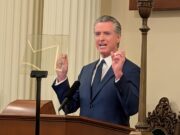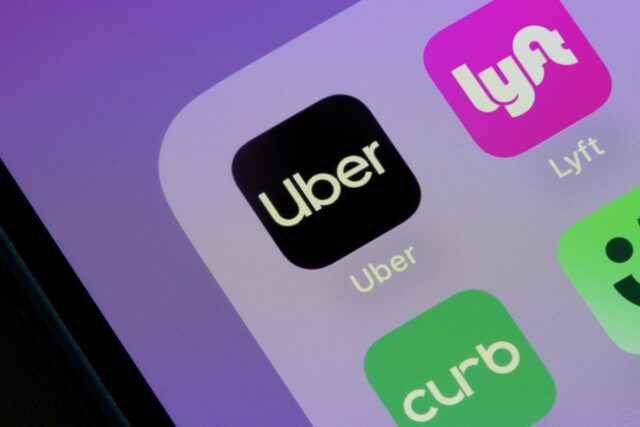By Edward Henderson | California Black Media
The California Legislature may soon settle a long-standing debate over Assembly Bill (AB) 1340, a contentious proposal that would let rideshare drivers unionize by relinquishing their independent contractor status.
Both sides of this issue have been in a standoff for over 10 years supporting different bills in the past and challenging them in the California Supreme Court.
Ever since Uber launched in 2009, there’s been an ongoing debate on whether rideshare drivers are independent contractors, as claimed by the apps, or bona fide employees, as claimed by labor advocates and workers.
Paving the way for AB 1340 was a decision surrounding Prop. 22 handed down by the California Supreme Court. Gig-economy companies had invested millions into Prop. 22. After voters approved it, labor advocates began contesting certain aspects of the legislation in court. They eventually scored a victory in the Castellanos v. State of California case that said the ballot measure couldn’t prevent future legislation to allow rideshare drivers to unionize.
The path to AB 1340 was cleared by a key California Supreme Court decision involving Proposition 22. Gig-economy companies had invested millions to pass Prop. 22, but after voters approved it, labor advocates challenged parts of the measure in court. They ultimately won a major victory in Castellanos v. State of California, where the court ruled that Prop. 22 could not block future legislation allowing rideshare drivers to unionize.
AB 1340 seeks to build upon the Castellanos decision. The bill passed out of the Assembly in early June, the Senate Committee on Labor, Public Employment and Retirement later that same month.
Opposition to the bill has not backed down as Uber, Lyft, the California Chamber of Commerce and select rideshare drivers have made their voices heard on the issue. A core argument against the bill is that it contradicts the wishes of the voters who supported Proposition 22.
“Voters approved Prop 22 and the courts upheld the law, yet special interest groups are repeatedly trying to undermine our rights as drivers,” said Al Porche, a San Diego rideshare driver quoted in a Protect App-Based Drivers & Services (PADS) Coalition press release shared with California Black Media (CBM) after the Senate committee approved the bill.
“This bill is bad for drivers, bad for consumers and will threaten the personal information and privacy of millions of rideshare drivers like me,” Porche said. “The legislature should reject this policy.”
Other arguments against the bill include:
· It forces companies to share the personal information of rideshare drivers
· It would limit the flexibility that rideshare drivers value when it comes to work schedules.
· It could lead to increasing prices for consumers.
“AB 1340 will directly impact millions of app-based drivers and California consumers,” said Julian Canete, President & CEO of the California Hispanic Chambers of Commerce. “The result will be higher prices and fewer rideshare availability, which is bad for drivers, bad for consumers and bad for businesses.”
Union advocates say AB 1340 would allow for higher pay.
According to a 2024 UC Berkeley Labor Center study, California gig rideshare drivers earn a median employee-equivalent pay of $5.97/hour, after expenses. Even as average rideshare prices rose over 7% from 2023 to 2024, Uber driver earnings fell 3.4% and Lyft driver earnings dropped 13.9%, according to Gridwise, an app that helps drivers track mileage and optimize earnings.
Labor supporters also say that safeguards against arbitrary terminations and safer working conditions would be possible if AB 1340 becomes law.
AB 1340 author, Assemblymember Buffy Wicks (D-Oakland) stated: “Millions of Californians depend on gig rideshare drivers to keep them moving, yet gig rideshare drivers have no seat at the table when decisions about their livelihoods are made. All workers deserve a fair shot in shaping their future with a voice on the job and the ability to bargain for better working conditions.”
John Mejia, a gig rideshare driver from the Bay Area believes working for gig companies has been full of broken promises – including the assurances Uber and Lyft made to voters when they claimed they would increase wages and benefits for drivers.
“The reality is that the costs of gas and insurance have soared, while drivers are seeing a shrinking share of fares,” said Mejia, testifying before the Senate Labor, Public Employment and Retirement Committee during a June 18 hearing at the State Capitol in Sacramento.
“The ‘flexibility’ of gig work is a trap if you just have to work more and more hours to make up for shrinking wages,” Mejia told members of the committee. “The only way for drivers to address these challenges and earn a fair share of rideshare companies’ record-breaking profits is through a union.”
On July 9, the Senate Committee on Appropriations approved AB1340 with an 11-4 vote.
It is now expected to move on to the Senate floor for debate and a vote. If both chambers pass the final version of the bill after any amendments, the bill goes to the Governor’s desk for his consideration.
If AB 1340 is signed into law, the earliest drivers could officially unionize would be Jan. 1, 2026.



